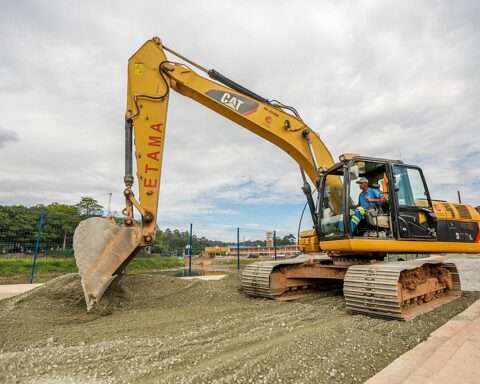Nearly a full year ago, Hurricane Helene hit land in the nation’s East Coast, damaging communities in nearly half of North Carolina and generating historic amounts of rain, strong winds, landslide and tornadoes.
In many ways, the storm, which amounted to approximately $59.6 billion in damages, served as a wakeup call, shifting state and local lawmakers’ priorities to resiliency and disaster recovery to better prepare for future weather events.
The Environmental Protection Agency (EPA) recently awarded $409.4 million to North Carolina for projects that bolster drinking water utilities and enhance resiliency in the face of upcoming natural disasters. While no major storms have rolled through the region this year, North Carolina is still in hurricane season, maintaining an ever-present risk that a tropical system will impact the state.
The funds awarded to the North Carolina Department of Environmental Quality (NCDEQ) are part of an ongoing recovery effort from multiple historic natural disasters that impacted the nation in 2024. North Carolina will be able to use the funds to enhance water treatment, distribute water, improve water supply sources, replace or build water storage tanks and advance other critical water infrastructure projects that will boost the state’s resiliency.
The award is the latest federal investment in North Carolina’s recovery, which previously amounted to $5.95 billion by March 21, 2025. While this represents a significant level of support to help the state recover, it still only amounts to 10% of the total damage caused by Hurricane Helene. North Carolina used the appropriations from various federal departments to provide housing and unemployment assistance, support community recovery, remove more than 8 million cubic yards of debris and disburse homeowner and small business loans.
To further expand on North Carolina efforts, the Federal Emergency Management Agency (FEMA) has awarded more than $124 million in August alone to help support critical infrastructure repair and restoration efforts. More than 200 recovery projects will receive direct support for emergency actions.
North Carolina will also be making millions available through its Renew NC program, providing up to $549 million across four funding opportunities. These programs include:
- The Community Infrastructure Program will provide $194 million to support infrastructure projects tailored to help communities affected by Hurricane Helene increase resiliency. Anticipated to open in October 2025.
- The Multi-Family Housing Program will distribute $191 million to help reconstruct, rehabilitate or build affordable rental housing. Anticipated to open in September 2025.The Economic Revitalization Program will offer $111 million to advance revitalization activities in impacted commercial areas. Anticipated to open in November 2025.
- The Workforce Housing for Ownership program will allocate $53 million to develop buyable units for low- to moderate-income households. Anticipated to open in 2026.
Cities and counties across North Carolina are the greatest beneficiaries of these awards as they work to finish projects designed to better handle and prepare for natural disasters.
Raleigh is currently in the design phase for the Lake Wheeler and Lake Benson Dam Safety Improvements project. Once completed, the improved dams will comply with all modern standards outline in the state’s Dam Safety Section and conduct studies that will help optimize water supply, flood control and recreational activities. In addition, the existing earthen embankment dam at Lake Wheeler will be reinforced while the city secures the spillways to protect against flooding.
Buncombe County has also made significant progress advancing disaster recovery efforts, prioritizing reinforcing its energy and environmental resilience, fleet and facilities restoration, stream stabilization efforts and housing programs. Some of their key projects will involve extending sewer infrastructure to replace septic systems, developing and repairing resilient housing, upgrading critical facilities to maintain operations during blackouts, creating an emergency operations center and building an emergency shelter facility.
Photo by Pixabay













